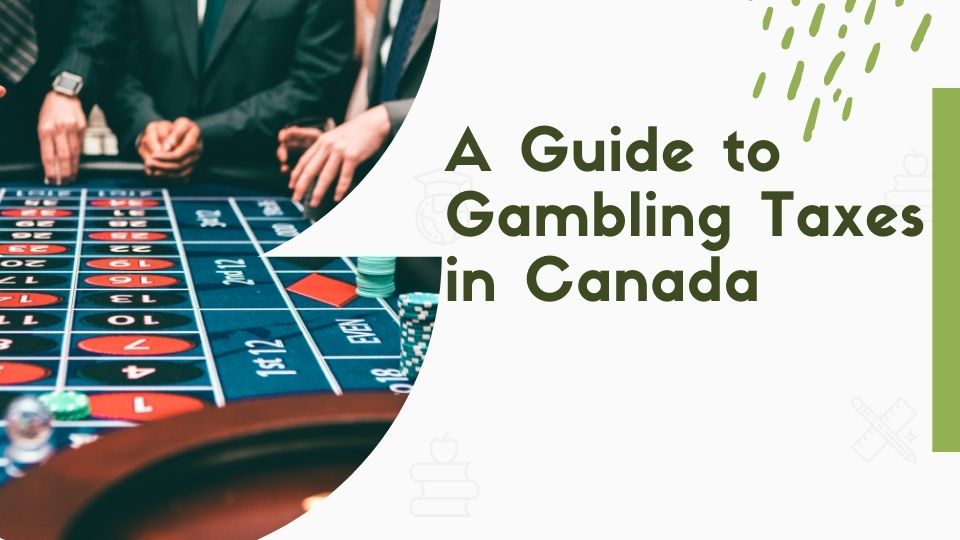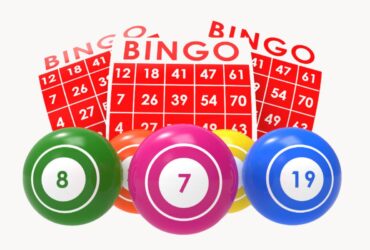When you’re reeling off the excitement of a big win at your online casino of choice, it’s safe to say that the potential tax burden will likely be the furthest thing from your mind at that moment in time.
Unfortunately, however, as the famous saying goes: the only two certainties in life are death and taxes.
And whilst you should embrace the celebratory spirit in the winning moment, you shouldn’t let this distract you from the longer-term implications of the victory.
There is a lot of misinformation and misunderstanding when it comes to the taxation of casino and gambling winnings in Canada.
This issue has become particularly important in the last few months as many provinces across Canada have liberalised restrictions on certain types of gambling activities.
For example, Ontario has recently launched its legalised sports betting market which has opened up the sector for millions of new players. And as the country’s most populated province, this will see many individuals trying out this hobby for the first time.
Suppose you are one of the many thousands of players looking to take advantage of the new online casinos that have been regulated by this Canadian province in recent months. In that case, you may have found yourself wondering what the tax implications of your winnings might be. With this question in mind, let’s do a deeper dive on this topic!
Are gambling winnings taxable in Canada?
If you are fortunate enough to win a large prize at your online casino of choice, you might not have realised that this may incur a tax liability.
Many people do not realise that gambling winnings must be reported as income on their annual tax returns, which renders them liable as fully taxable.
This covers everything from cash winnings at casinos, lotteries, and sports betting platforms, as well as other non-cash prizes such as holidays, cars, vouchers, or other physical prizes.
However, whilst this might seem like bad news—after all, who among us actively wants to pay more tax than they need to—whether you have to pay tax on these winnings will depend on several different factors.
The most important factor is whether the prizes you have won gambling constitute a windfall gain or business income. Whilst taxes will be due in the case of the latter, this will not generally be the case in respect of the former.
With this in mind, let’s take a close look at the difference between windfall gains and income!
Windfall gains vs income: what’s the difference?
As we have seen, the main deciding factor in whether you will have to pay taxes on any gambling winnings you make depends on whether it constitutes a ‘windfall gain’ or a form of income.
Windfall gains are taken by the relevant tax authorities to refer to any unexpected gains you have received. Gambling winnings tend to fall under this category as when you place a wager, you generally do not expect them to result in a profit.
This contrasts with a business income, where the person has a reasonable expectation of making a profit from that activity. This expectation is instead based on their skill, consistency, and intention.
However, this is not to say that tax authorities will view all gambling profits as a windfall gain. After all, many people trade the stock markets based on a whim rather than an expectation!
Rather, some categories of winnings will always be viewed as windfalls. This includes lotteries, slot machines, and roulette winnings. These are purely luck-based, and individuals cannot be viewed as expecting that they would consistently see a profit. As such, gains from these games will generally not be viewed as taxable.
On the other hand, when there is a higher degree of skill involved, it is more likely they will be viewed as taxable. This could include games such as poker or blackjack.
Another important factor is whether the individual playing the skills-based game is a professional or amateur. Individuals who play these games on a full-time basis with an expectation of consistently generating an income have an expectation of profit.
As such, casino winnings generated by full-time gamblers on skills-based gaming will be taken to be a business income liable to income tax. Professional gamblers are highly skilled and approach gambling in the same way they would a business.
Who is a professional gambler?
How do the tax authorities decide who constitutes a professional gambler and who doesn’t?
This is a complex point to determine, and it can have significant implications for the individuals concerned. Things get even more complicated when the individual is a regular or semi-professional gambler!
In general, the factors that the Canadian tax authorities will consider include the following:
- Whether or not the individual attends tournaments regularly
- Whether they travel to play or to participate in events
- Whether the gambling profits constitute a primary or substantial income source
- Whether they practice, take classes, or receive other assistance to improve their skills
- Whether they consistently earn money—although not always
- Whether they have generated an income this way for a significant or extended period.
In contrast, amateur gamblers will tend to gamble infrequently, they only attend casinos rather than tournaments, they attend casinos socially and will not win consistently. They will also generally have another main source of income.
This is an illustrative list of factors that will be considered by relevant tax authorities.
If you are worried about whether you will have to pay taxes on your gambling winnings be sure to keep your finances in good records. Make sure you have a paper trail that you can use to prove any winnings you do make.




